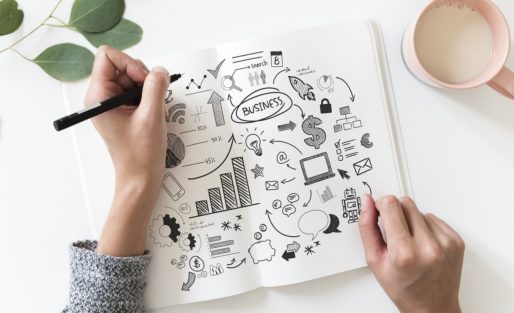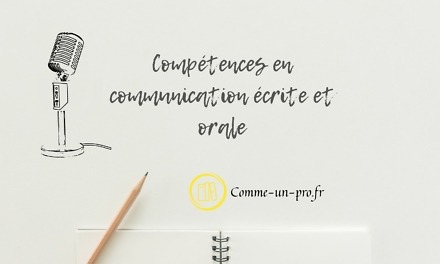It is not easy to understand or know how to synthesize information. In fact, not everyone has a synthetic mind. This is to say that some people are less skilled than others in their way of learning to synthesize information. However, there are techniques and exercises to get you up to speed. These very often difficult to identify are however essential both in everyday life and in your work.
Importance of information synthesis
Every day, we are bombarded with information. Not always easy to find everyday information that is essential or secondary depending on the situation. In the field of work, developing a spirit of synthesis is essential for moving forward. Whether it's learning new information from your work, or passing it on, you'll need it to choose what's important to understanding a topic.
The spirit of synthesis is essential for the students, it will allow an effective reading of the courses. Indeed, it will be possible to highlight and retain key information without being burdened with secondary parameters as we have already seen. Learning synthesis also helps others make decisions by guiding them in their choices. This know-how is essential whether one is a journalist, a communicator, a reporter or a student. However, it is necessary to avoid making the link between synthesis and summary, indeed if it seems close it nevertheless represents distinct realities.
Difference between synthesis and summary
Synthesizing information has nothing to do with summarizing it. If the summary is a summary of information that we have while trying to reduce the information to a bare minimum synthesis for its part is based on the key points on a specific topic.
Synthesis is a way of conveying important information about a specific subject. Unlike document-based summaries, the synthesis of information goes beyond written data to cover a broader and more imaginative field. Thus, a summary can take into account information that is in mind and that will allow the receiver to have a better understanding of the information sent.
In any case, it is essential to ensure that the information has sources that can be relied upon in case of need. But it is true that some techniques synthesis are still based on the summary.
6 techniques to learn how to synthesize information quickly
For many people, learning to synthesize information is not always easy. Some techniques allow you to do it effectively no matter what kind of synthetic work you have to do. These techniques will help you develop many skills that will serve you in everyday life.
1-The concentration
It is essential to take the time to read, to have a global idea of the subject on which you have to make your synthesis. Remember to write at least three key phrases that often come back to mind.
2-The reflection
Just as for many texts that will serve an audience, the synthesis must captivate recipients. Bet on short content that will take up to three to ten minutes to read. For this reason, knowing how to synthesize information requires staying in singularism and openness.
You must not let yourself be locked up as is the case for the summary. Opt for texts cut in part to stay in the theme. A summary trick is undoubtedly to use key terms to be in simplicity.
3-The Placement of Simple Plans
Plans are essential to work. They help to avoid leaving too much room for imagination. This frame will allow you to develop your thoughts with a spirit of synthesis. There are three types of plans for a successful synthesis.
The plan by opposition where opposites collide. The latter allow an idea to be valued by opposition;
The scientific plan which is a kind of synthesis based on the inventory. The reasons for the situation and the different solutions that can be considered will be put forward;
The plan by category, this type of synthesis is undoubtedly one of the simplest. The different categories involved are subtitled before being filled. It is generally recommended to take the time to highlight the plans by category and by contrast to clearly explain your words.
4-Information filtering
It is essential not to fall into the trap of synthesis, not to waste your time by reading in depth all the texts you have. Of course, some exceptions are necessary, especially when you have to summarize a course or training. Have a specific goal by asking yourself essential questions such as: how you will respond to certain proposals, the thought of the person who wrote the text, the words that have meaning with this subject...
Once these questions have answers, you will understand the overall purpose of the text. To succeed, take the time to learn how to do panoramic reading.
5-The realization of a mental map
The synthesis can also take the form of "Mind Mapping", this exercise that boosts creativity to map your project. It is actually a simple and fun reality. Just use a reminder to display the actions you want to take. In this case, the actions to be undertaken are divided into several main branches under which secondary ideas are placed. These main branches can for example be based on the plan by association. It is effective for gathering ideas and avoiding any repetitions.
6-The stop of perfectionism
Because a synthesis is often crucial to show your opinion or push people to take action, it can be stressful. The fear of not having said everything, to have removed an argument that would have tipped your audience is often very present. If it is important to want to provide the best possible rendering, it should not at any cost become a source of stress.
Indeed, the stress has sometimes negative consequences on the work of synthesis that it can transform in work of restitution. To avoid falling into this trap, where the superfluous takes the majority of the place, take the time to ask yourself about the phrases used and their importance. Be sure to delete the definitions, explanations and appendices.
The place of analysis in the synthesis
The spirit of synthesis and analysis is not the faculty best shared. Many people tend to conceal the essentials to take into account only the details. The analysis with these different action grids makes it possible to differentiate the important information from that which has no primary interest. Here are some analysis charts to help you understand your text.
The CQQCOPQ grid answers questions about how, what, who, how much, where, when and why. You will be able to identify the manner of speaking, the theme of the subject, the person speaking about it, their numbers, the place, the time and the reason.
The advantages versus disadvantages grid is also recommended when you have to synthesize information on more technical subjects. You will enjoy a realistic and practical synthesis.
The grid of facts and opinions for its part is essential when making the synthesis based on public realities. You can not talk about a social situation.
The grid of weaknesses against strengths for its part is essential when you have to synthesize a market study. This analysis posture allows you to develop a plan by opposition. You will be able to put forward your arguments by showing the gaps of the other solutions that could be envisaged.
Compression in synthesis
There are many exercises to learn in stages to synthesize information. Exercises in the form of chalenges are ideal for you to develop your analytical and synthesis spirit. To help you test one, we opted for information compression. This exercise-game is definitely within the reach of all, it allows beginners to prove themselves without stress and move slowly but surely.
To play, just take a subject of your choice, be it a movie, a series or a course. Begin by summarizing all the content in 5 words. It may not be easy, but make an effort to find. Repeat the exercise condensing into 25 words. It is important to respect the number of words. Fit to 50 words then switch to 10 lines and 20 depending on the size of the information to be synthesized.
At level 7 of this game, you will try to overcome your apprehension of others to learn to express yourself effectively orally. This solution will allow you to present your summaries of information orally if necessary.
This game also gives you a multidisciplinary spirit of synthesis, so you can make a respectful synthesis of disciplines. Whether you are dealing with areas that are known or unknown, literature or technique, you will have all the elements upstream to melt into a reality that is new to you.
This game will also allow you to remember that we are in a world where people are constantly solicited. A good synthesis spirit will therefore be based on well-thought words to express a reality in a few words. You will be conditioned to forget the details and to dwell on what is important. This game will ultimately allow you to do a complete synthesis without wasting time while saving words.
Size of an effective synthesis
Whether your synthesis is oral or written, it must include all the important aspects of the question. A good summary should not exceed one page. If you want to send it by mail, know that the ability to concentrate when reading on a computer is often twice as short as normal. In addition, the decline in love for reading does not work in your favor. By mail, twelve lines are enough.
If it is a summary that will be read, it should not exceed two or three minutes to not lose your audience. If it is not possible to do something necessarily short because of the mass of information present, do not hesitate to go beyond a page, but each word must really have an impact.
To succeed this bet, simplicity must be appropriate, start with catchy titles, develop with simple sentences. The synthesis is not a literature contest, make synthetic formulas in which the majority can be found.




